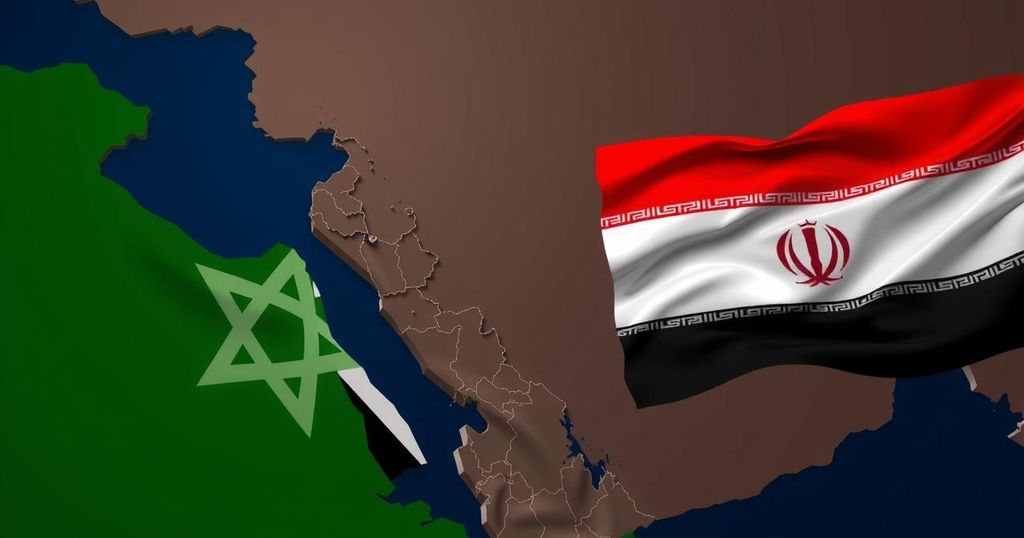Saudi Arabia, the UAE, and Egypt demonstrated notable restraint in their responses to Israel’s military action against Iran, reflecting a shift in regional dynamics. Instead of outright condemnation, these nations stressed the importance of dialogue and regional stability. Their measured discourse signals a potential strategic realignment, wherein these Arab states may see Israel as a partner in countering Iranian influence, highlighting shared interests over traditional hostilities.
In a region characterized by intricate alliances, the responses of Saudi Arabia, the United Arab Emirates (UAE), and Egypt to Israel’s recent military actions against an Iranian facility reveal a significant shift in political dynamics. Rather than the customary denunciations directed at Israel, these nations displayed measured and guarded responses, indicating a potential realignment of priorities. The UAE, while explicitly condemning the military actions against Iran, focused on the necessity for dialogue and adherence to international law, steering the narrative towards diplomatic avenues rather than confrontation. This strategic positioning aligns with the UAE’s ongoing diplomatic endeavors, particularly in light of the Abraham Accords, which signify enhanced cooperation with Israel. Saudi Arabia echoed this sentiment, characterizing the Israeli attack as a “violation of sovereignty” yet underlining the imperatives of security and stability within the region. This tempered response reflects an evolving viewpoint, one that acknowledges the importance of Iranian sovereignty while implicitly validating Israel’s security considerations against Iranian threats. Furthermore, Egypt’s statement accentuated broader concerns regarding regional stability, cautioning against confrontations that could imperil international peace. By encompassing multiple geopolitical issues in its response, Egypt reiterated its role as a mediator and emphasized the collective security of the region over any individual state’s actions. These nuanced responses from Saudi Arabia, the UAE, and Egypt suggest a quiet strategic realignment towards accommodating Israel’s security measures in the face of growing instability posed by Iran. Historically, such military actions by Israel would have elicited unified denunciation; however, the current climate of diplomacy indicates a willingness to acknowledge Israel’s role as a counterbalance to Iranian influence. This marks a departure from conventional rhetoric, wherein these nations seem to consider the implications of collaboration with Israel in pursuit of shared stability and security.
The geopolitical landscape of the Middle East has long been fraught with tension, particularly regarding the relationships between Israel and its Arab neighbors. Traditionally marked by adversity and conflict, these relationships have shown signs of evolution, particularly in response to regional threats such as Iran’s expanding influence. The recent military engagements and public statements by Saudi Arabia, the UAE, and Egypt following Israel’s actions signal a potential transformation in their diplomatic stance—one that prioritizes regional security and stability above traditional animosities. Understanding this backdrop is essential for comprehending the implications of their recent communication, indicating a shift towards pragmatism and collective interests in the region.
The measured responses from Saudi Arabia, the UAE, and Egypt following Israel’s military operations against Iran reveal a significant shift in the regional political paradigm. Rather than outright condemnation, these nations are adopting a more diplomatic language that reflects their current priorities of regional stability and curbing Iranian influence. The tendency to recognize Israel’s strategic role suggests a trend towards a more cooperative relationship, indicating a possible realignment in Middle Eastern geopolitics as these countries navigate their interests amid complex regional dynamics.
Original Source: www.jpost.com






